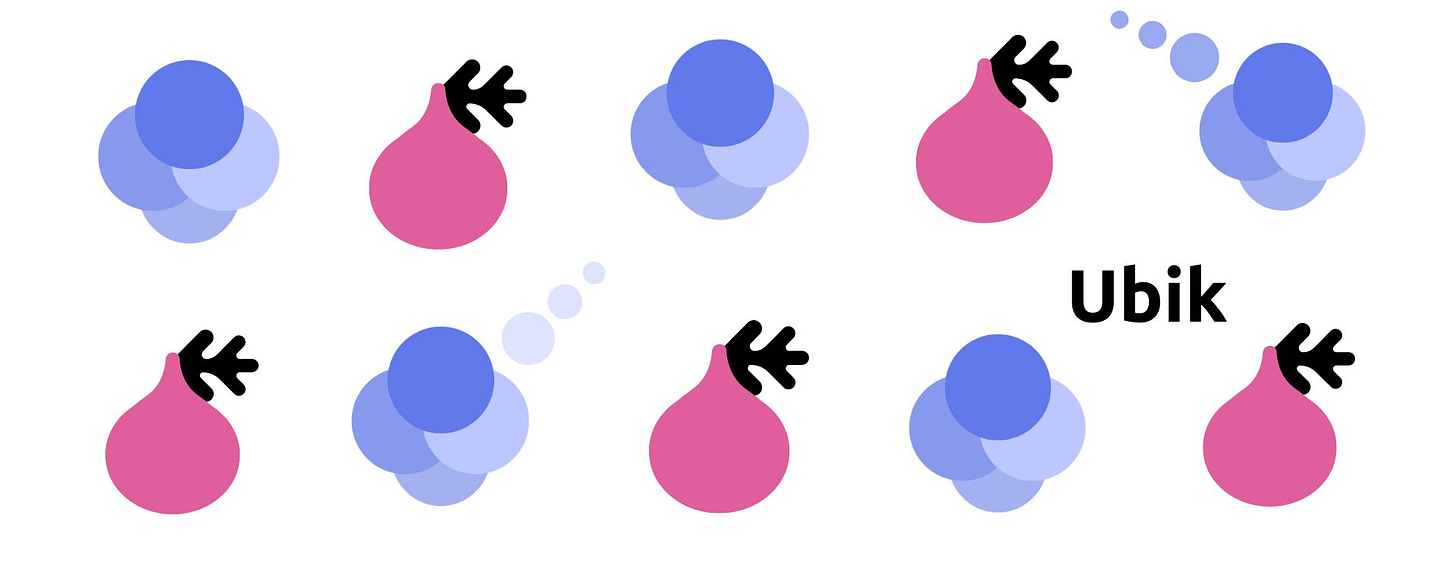- Published on
Living in Dune
Welcome to the Ubik Blog!
If you still need to subscribe, subscribe here!
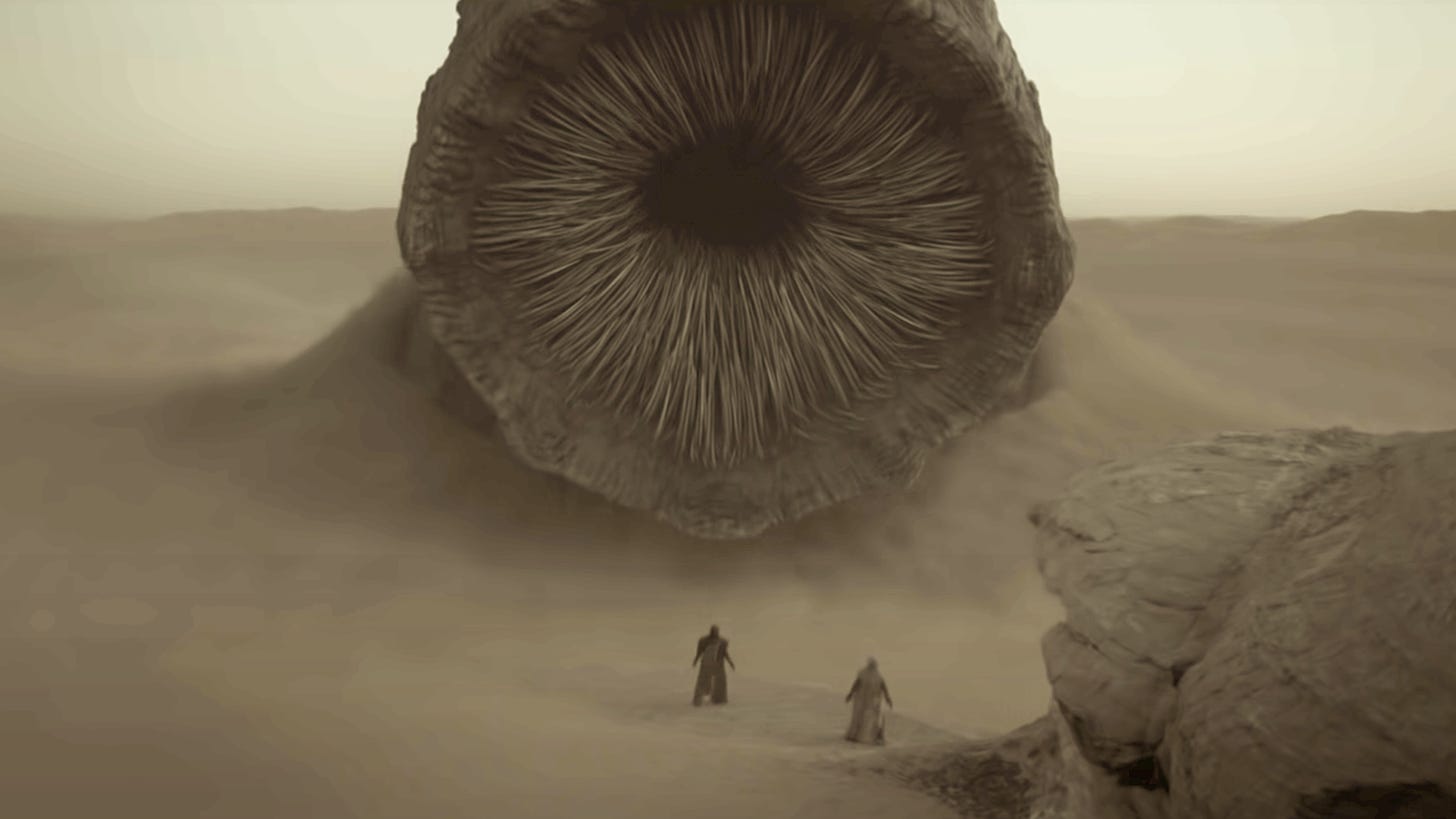 Image Credit: Screenshot from “Dune Part 2” trailer.
Image Credit: Screenshot from “Dune Part 2” trailer.
Like many of you, I've just seen "Dune Part 2," a blockbuster my YouTube ads have dubbed "the best movie of 2024" in an AI-generated, classic 90's/Y2K promotional trailer voice, that honestly made me want to see it less.
However, I'm glad I went.
While I loved "Dune Part 1," this sequel felt more political, with its metaphors in my face. I immediately went home and started the book.
Nature and Destruction: The Ecological Paradox
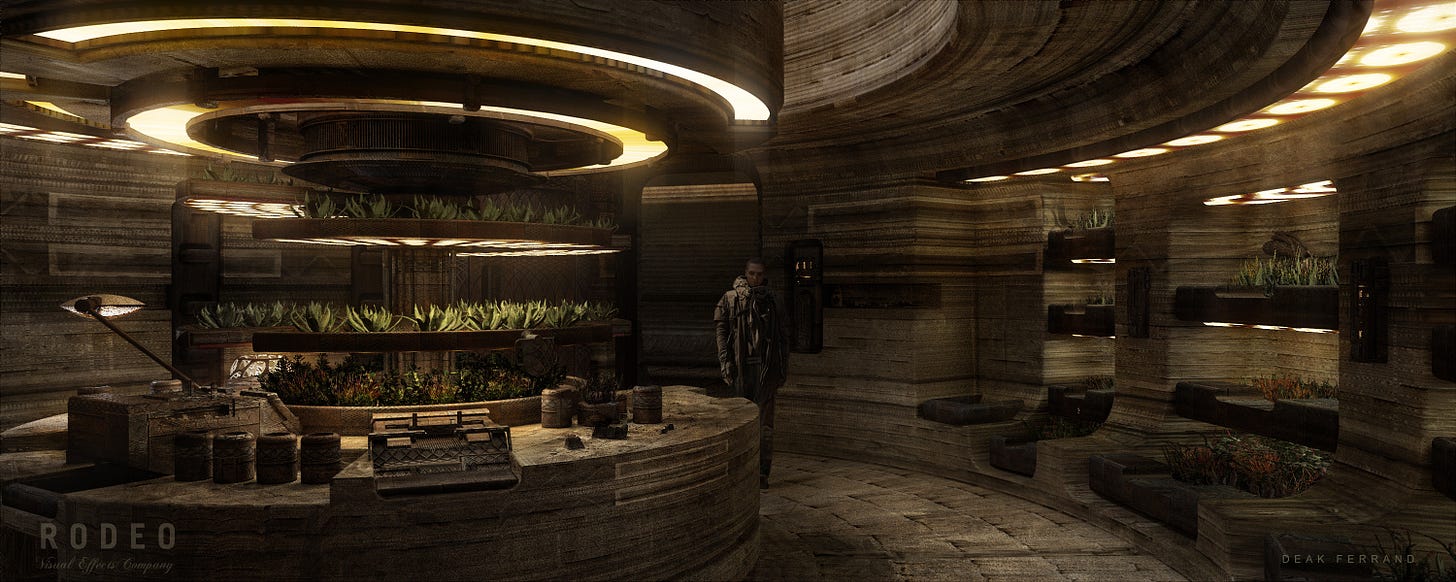 Image Credit: Screenshot from “Dune,” 2021. Inside Dr. Kynes's “Planetologist” lab, exploring new ways to grow plants on Arrakis.
Image Credit: Screenshot from “Dune,” 2021. Inside Dr. Kynes's “Planetologist” lab, exploring new ways to grow plants on Arrakis.
"Dune" delves into power, trust, and poverty. In the "Duniverse," Spice is a naturally occurring substance that powers space travel and, by extension, the universe. The collection of Spice is a brutal and often deadly endeavor, fraught with extreme heat and giant sandworms lurking to devour collectors. Those in power will go to extreme lengths to secure these precious resources.
Strip away the Spice and the giant sandworms, and the story becomes eerily familiar. By the 1960s, the U.S. and other Western powers had grown dependent on oil from the Middle East (Council on Foreign Relations, 2024). Oil transformed human interaction with space—gas-powered planes, ovens, homes heated by gas, and an influx of plastic products. Just as Spice dominates Arrakis, oil swiftly reshaped America and the world.
Power, Trust, and the Illusion of Liberation:
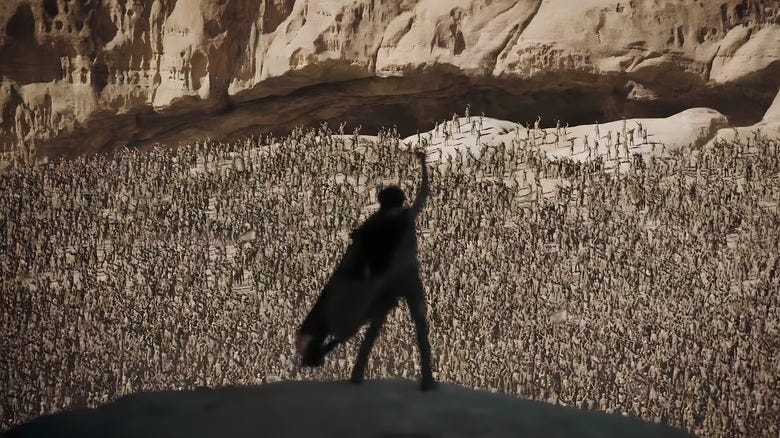 Image Credits: Screenshot from “Dune Part 2” trailer.
Image Credits: Screenshot from “Dune Part 2” trailer.
The Fremen's belief in the "Lisan Al Gaib," a prophetic voice promising liberation, mirrors the real-world "Western gaze," where Western entities believe that "others" require their assistance or are hindered by cultural misconceptions. Initially viewed as a potential liberator, Paul Atreides navigates the intricate dynamics of power and trust as he steps into a leadership role. The trust in Paul's ability to "liberate" the Fremen is partly a false belief spread by the "Bene Gesserit," a religious group using the "Lisan Al Gaib" concept to control and foresee the future.
Paul's arc can be seen as a metaphor for Western ideology and the global spread of American values. His journey from a young nobleman to a messianic leader mirrors the narrative of American exceptionalism, where the U.S. acts as a beacon of democracy and freedom. The Fremen's acceptance of Paul as their savior reflects the real-world phenomenon of smaller nations being encouraged to align with American frameworks for promised prosperity and liberation.
This portrayal serves as strategic messaging by government officials and the state, positioning America as a savior and justifying its interventions in foreign lands. Just as Paul's leadership brings hope and destruction to Arrakis, the spread of American values has complex and sometimes detrimental effects on the global stage, raising questions about faith and the actual cost of trust.
Sad Truths
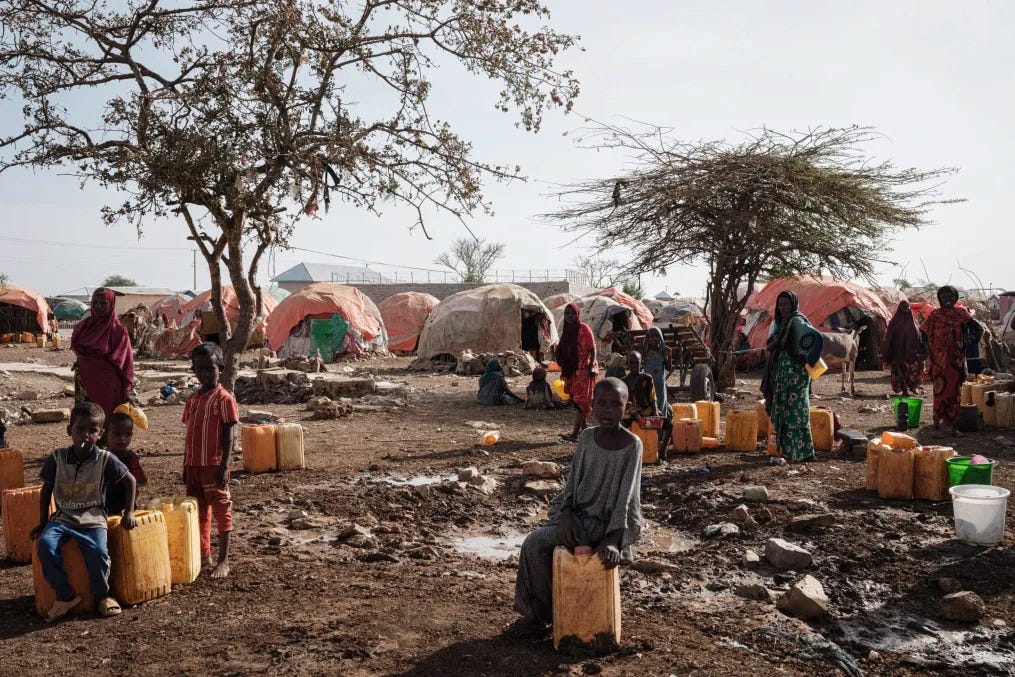 People wait for water at a camp in Baidoa, Somalia, on February 13, 2022. Yasuyoshi Chiba/AFP/Getty Images
People wait for water at a camp in Baidoa, Somalia, on February 13, 2022. Yasuyoshi Chiba/AFP/Getty Images
As I close the pages of "Dune" and step back from the cinematic spectacle of "Dune Part 2," I reflect on the sad truths that Frank Herbert's science fiction predicted. The themes of power, trust, poverty, and environmental destruction are not just elements of a distant, fictional universe; they are pressing issues in our world.
"Dune" serves as a mirror, reflecting our struggles with resource exploitation, political power dynamics, and the consequences of our actions on the environment. It challenges us to consider the real-world implications of our pursuit of power and resources and the impact of our technological advancements on the planet.
Herbert's masterpiece and Denis Villeneuve’s rendition, reminds us that the stories we tell and the metaphors we create can shape our understanding of the world and our place in it. As we navigate the issues of the modern world, we should take the lessons of "Dune" to heart, striving for a future where those in power are held responsible, trust is earned and preserved, and nature is respected and protected.
"Dune" isn't just a story about a distant planet and its precious resources; it is about us, our choices, and the future we are creating. Hopefully, we will learn from the sad truths that "Dune" has predicted and stop fulfilling a prophecy of global harm.
Work Cited
Council on Foreign Relations. (2024). Timeline: Oil dependence and U.S. foreign policy. Council on Foreign Relations. https://www.cfr.org/timeline/oil-dependence-and-us-foreign-policy
Mulhern, Owen. "Is the Sahara Desert Growing?" Earth.Org, Earth.Org, 5 Mar. 2024, [earth.org/data_visualization/the-past-present-and-future-of-the-sahara-desert/](http:// earth.org/data_visualization/the-past-present-and-future-of-the-sahara-desert/.).
Check out our AI Education tool here:
Fiig.ai by Ubik
Fiig is a research studio, unlike other research tools. It's a knowledge base + a kit of knowledge tools that allows users to start and finish complex projects all in one place. With Fiig, you search through 200 million + sources, annotate and analyze available documents using AI, or build original papers using your trusted sources.
Join us
After making an account at fiig.ai, users can:
SEARCH through 200 million + sources.
annotate and analyze available documents using AI.
Build original papers using your trusted sources.
